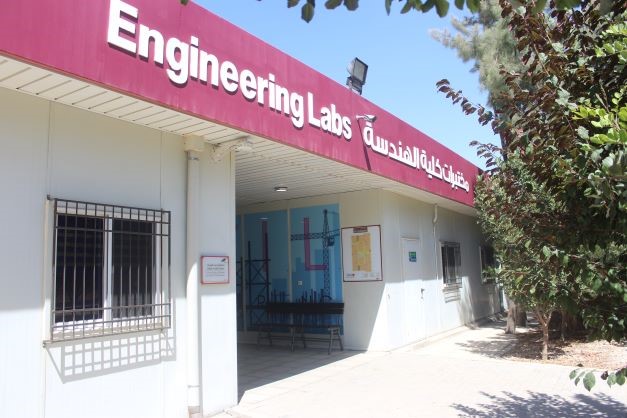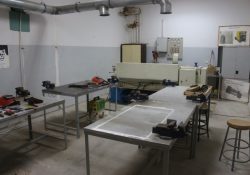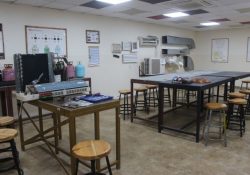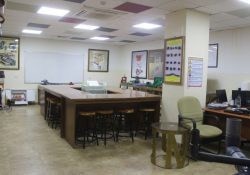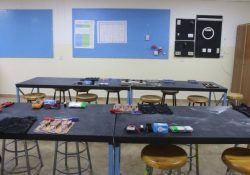Laboratories
The Engineering workshop is delivered to the students through the courses (Engineering Workshops I, 0921201/ Engineering Workshops II, 0921202). Engineering workshops are equipped with a variety of equipment to support practical exercises including fitting, forging, carpentry, casting, welding, mechanical saws, shearers, drills, lathes, milling machines, shapers and grinders. Moreover, this workshop offers hands-on artistic crafts as hot water heating recognition, hands-on different types of copper joints, and training on the formation of copper and iron tubes.

Surveying Lab is delivered through the course (Surveying Lab,0922304). This laboratory was established in the Department of Civil Engineering and is fully equipped to perform various works of surveying works at the highest level including preparing and measure distances and horizontal maps using tape space, the level device, including measuring levels, preparing cross sections, preparing contour plans, applications on theodolite device (horizontal and vertical angle measure device), polygon preparation and correction, layout of horizontal curves and practical applications on the Total Station device and layout of horizontal curves using coordinates.
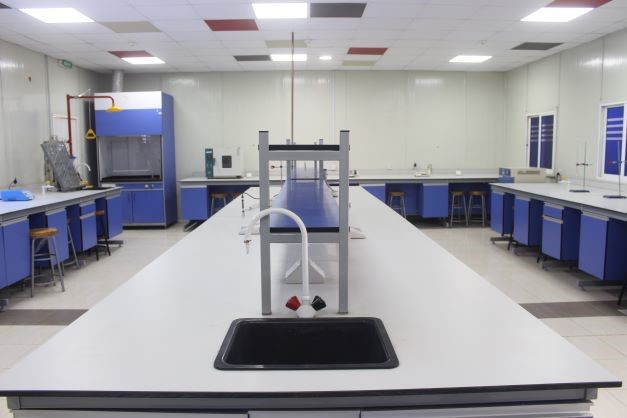
Environmental and Sanitary Engineering Lab is delivered through the course (Environmental and Sanitary Engineering Lab., 0924602). The laboratory was equipped in stages and currently occupies room No. D008 with an area of more than 60 square meters in level G of Building No. D of the Middle East University. The laboratory has been prepared and equipped with the latest devices and equipment to assist and monitor water and wastewater quality based on analysis and water quality management.

Fluid Mechanics-Lab is delivered through the course (Fluid Mechanics-Lab, 0923402). The lab is equipped with variety of devices to perform experimental for the following systems: center of pressure; impulse momentum principle; pumps, friction losses in pipes, streamlines and flow fields, buoyancy, Radial flow fan, Water turbine, and Flow measurement.
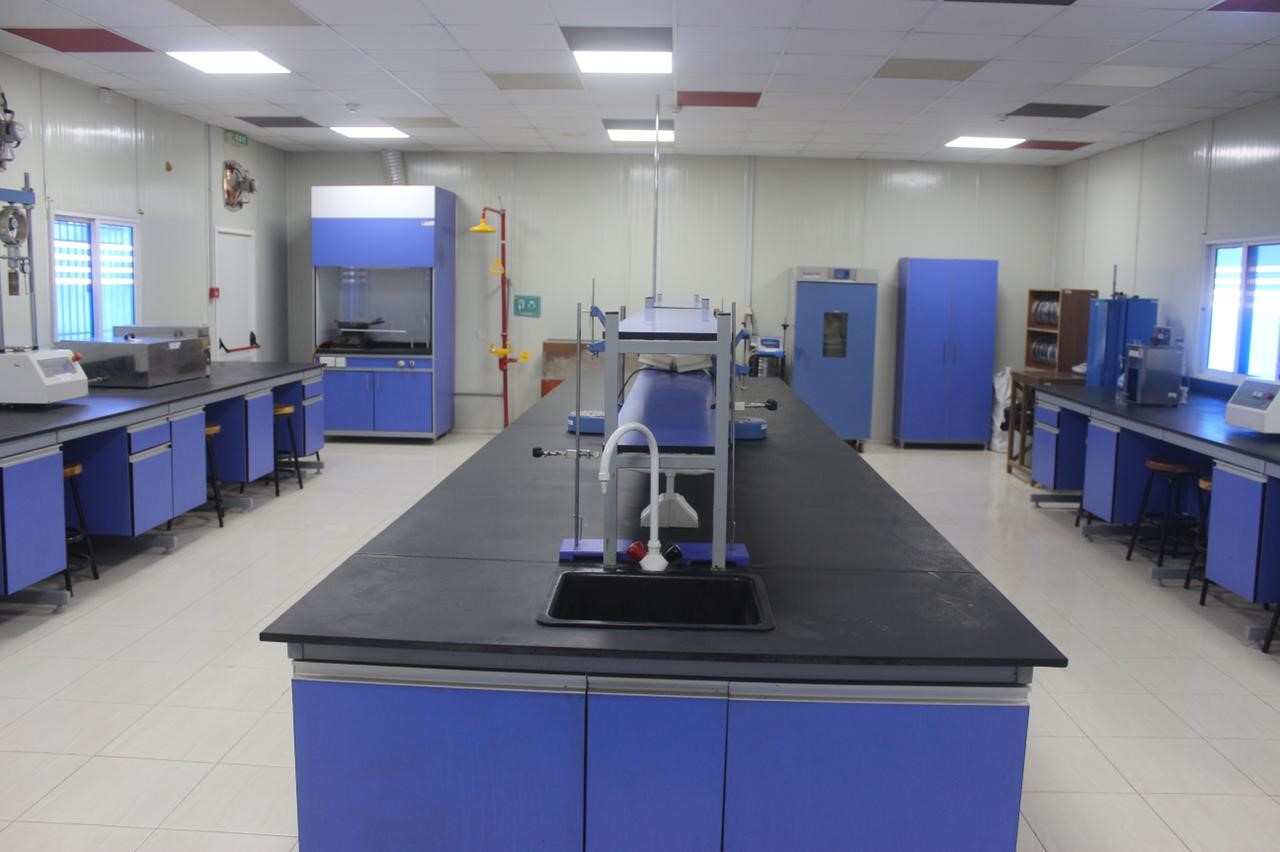
Highway Materials Lab. is delivered through the course (Highway Materials Lab., 0924703). The laboratory has been equipped with the equipment and tools required to conduct experiments related to asphalt checks, aggregate tests used in road materials and asphalt mixtures checks.
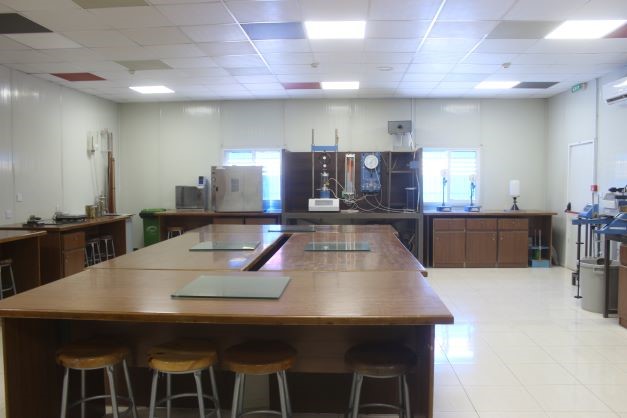
Soil Mechanics Lab. is delivered through the course (Soil Mechanics (Lab.), 0923802). The laboratory has been equipped with the equipment and tools required to conduct experiments related to mechanical properties of the soil such as the strength, compressibility, and permeability.
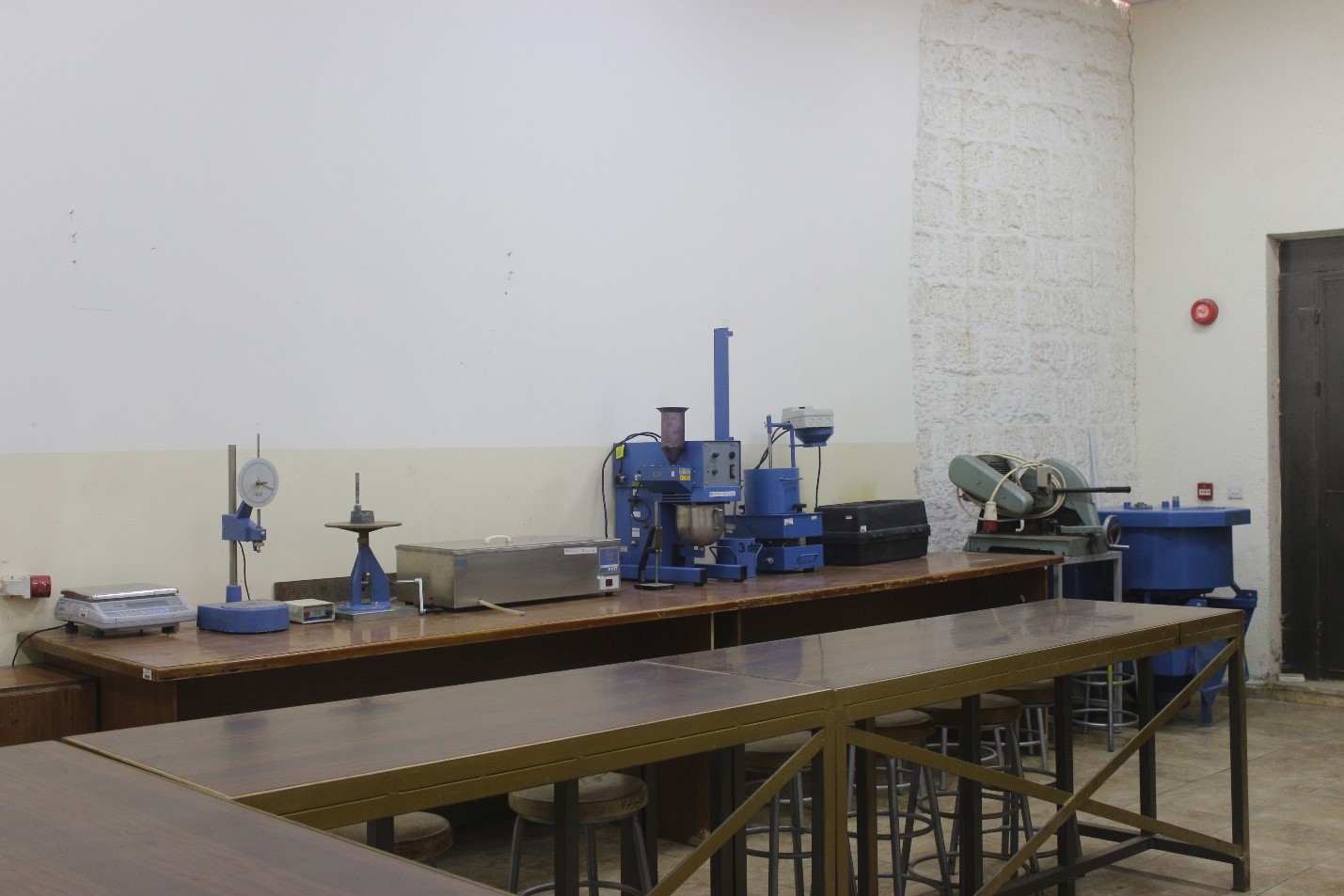
Building Materials Technology Lab is delivered through the course (Building Materials Technology Lab, 0922302). The laboratory has been equipped with the equipment and tools required to conduct experiments on cement, aggregates, fresh concrete mixes, and hardened concrete.
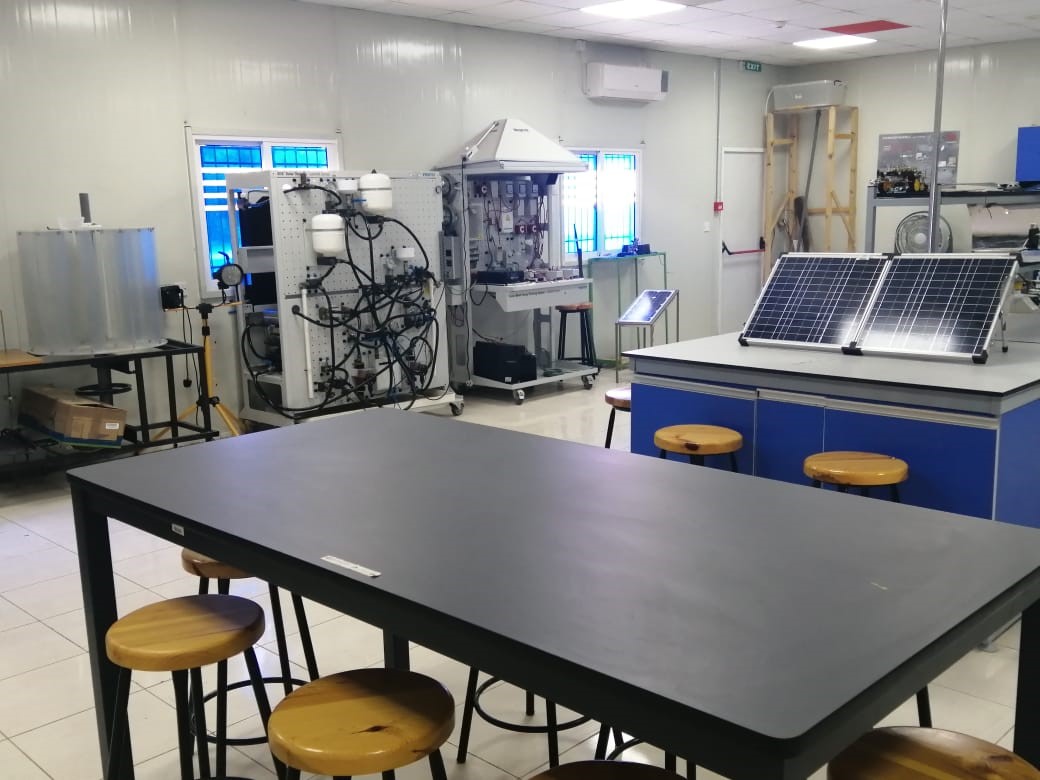
The Solar Lab includes a variety of equipment relating to the generation, measurement and conditioning of solar energy power. The lab offers a rich implementation of the concepts students encounter in a variety of courses including Solar Power.
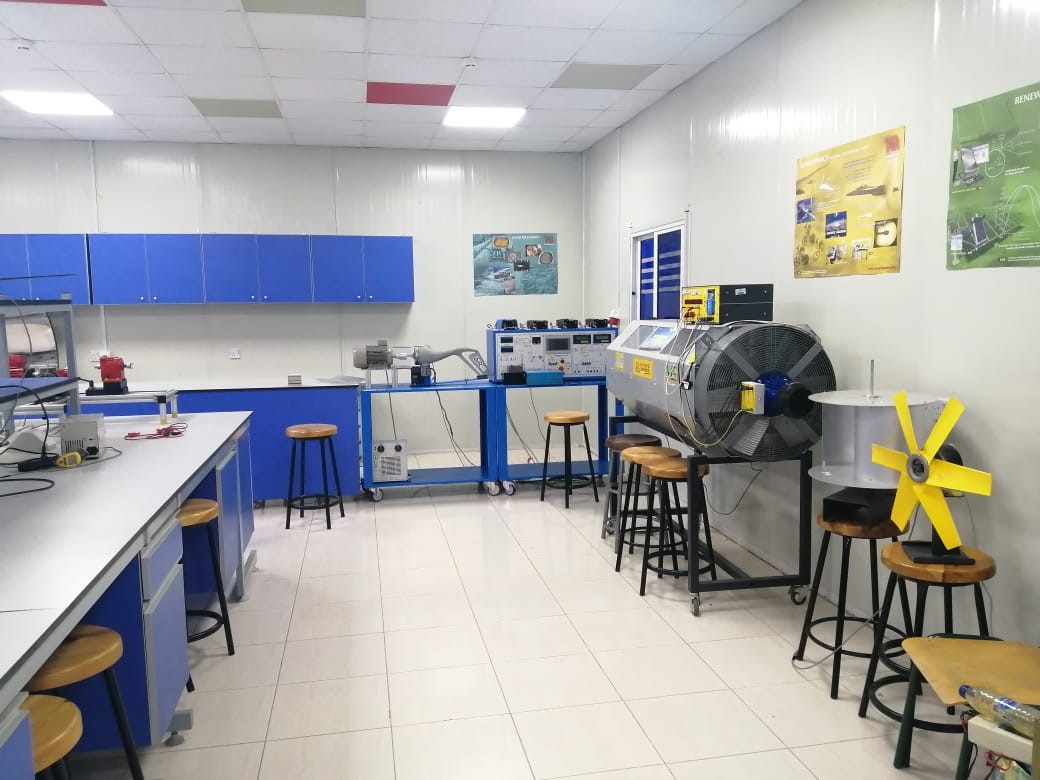
The Wind Lab includes a variety of equipment relating to the generation, measurement and conditioning of different wind turbines. The lab offers a rich implementation of the concepts students encounter in a variety of courses including Wind Power.
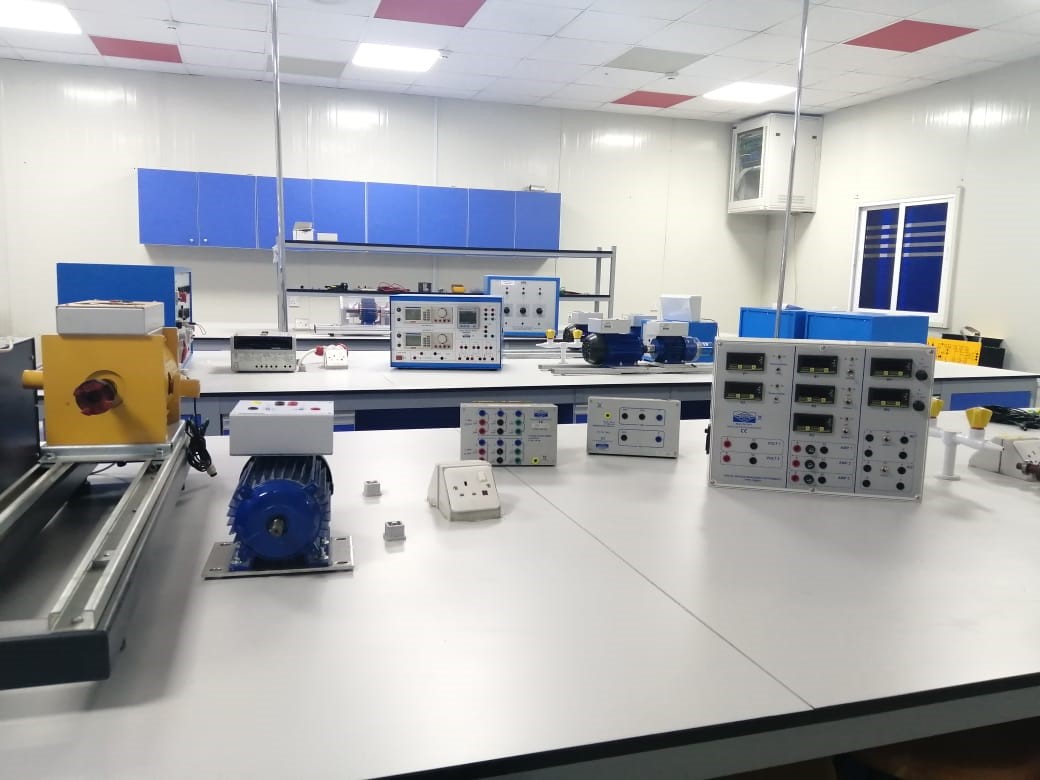
The Wind Lab includes a variety of equipment relating to the generation, measurement and conditioning of different wind turbines. The lab offers a rich implementation of the concepts students encounter in a variety of courses including Wind Power.
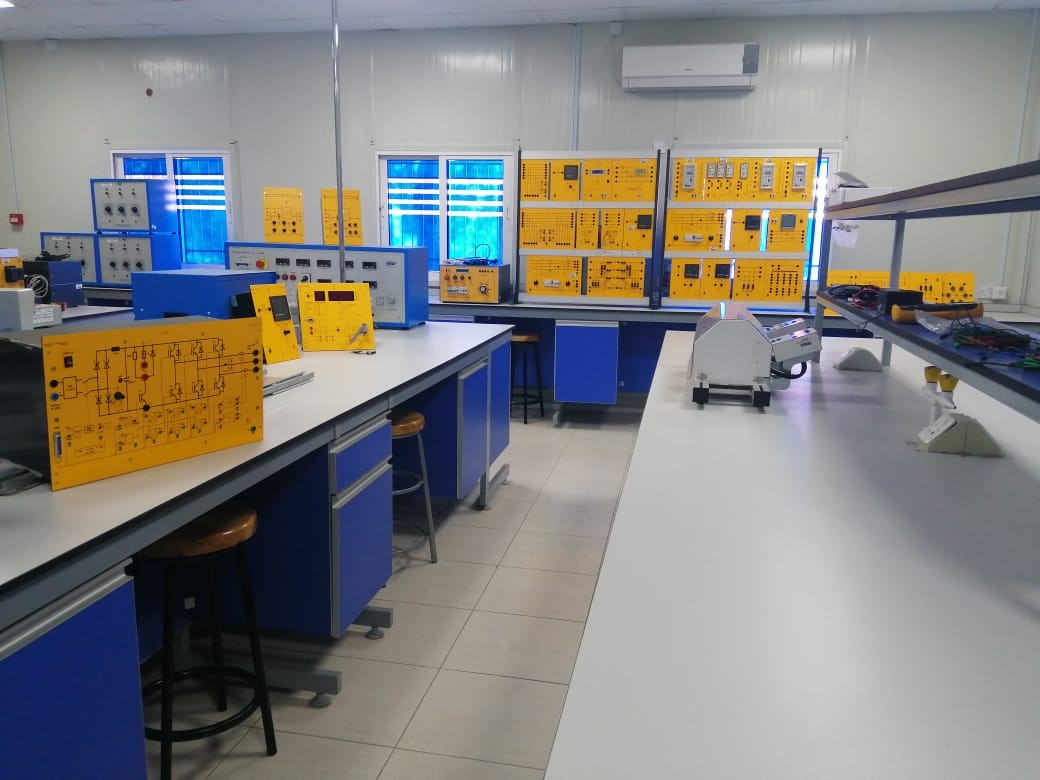
Various power system events are simulated using the equipment list below. The lab is mainly covering protection relays, transmission line models, synchronizing 2 synchronous generators, energy meters, Busbars and improving power factor.
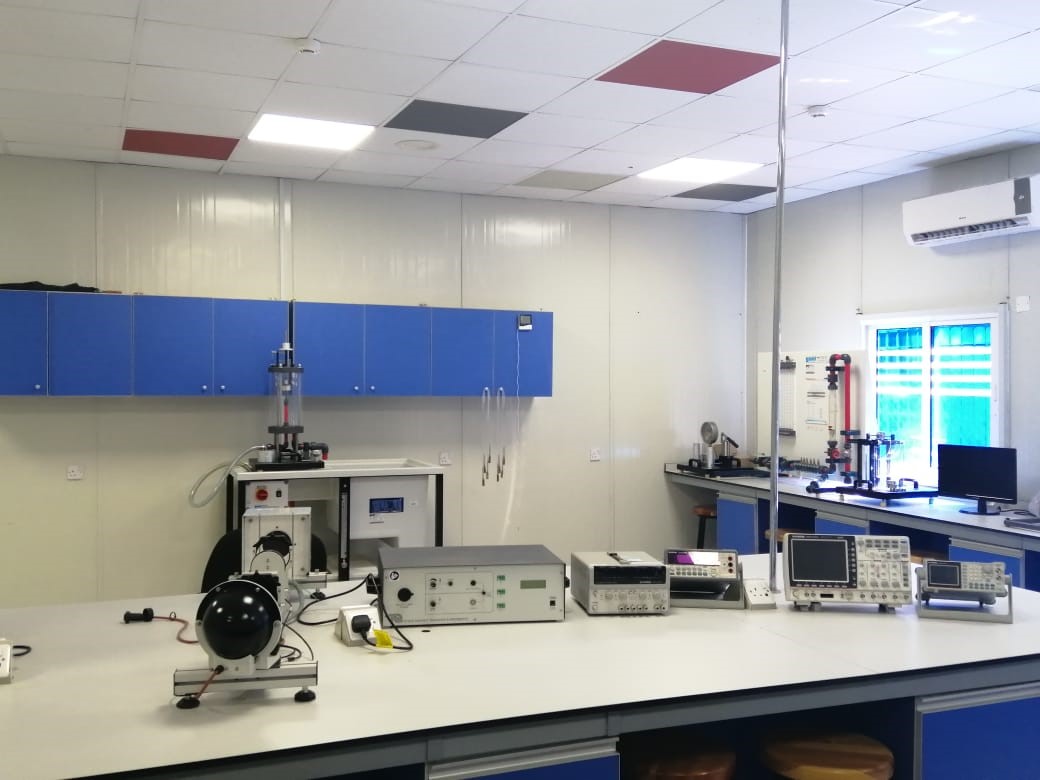
The Instrumentation Measurements Lab includes a group of equipment enabling students to carry out both mechanical and electrical measurement experiments.
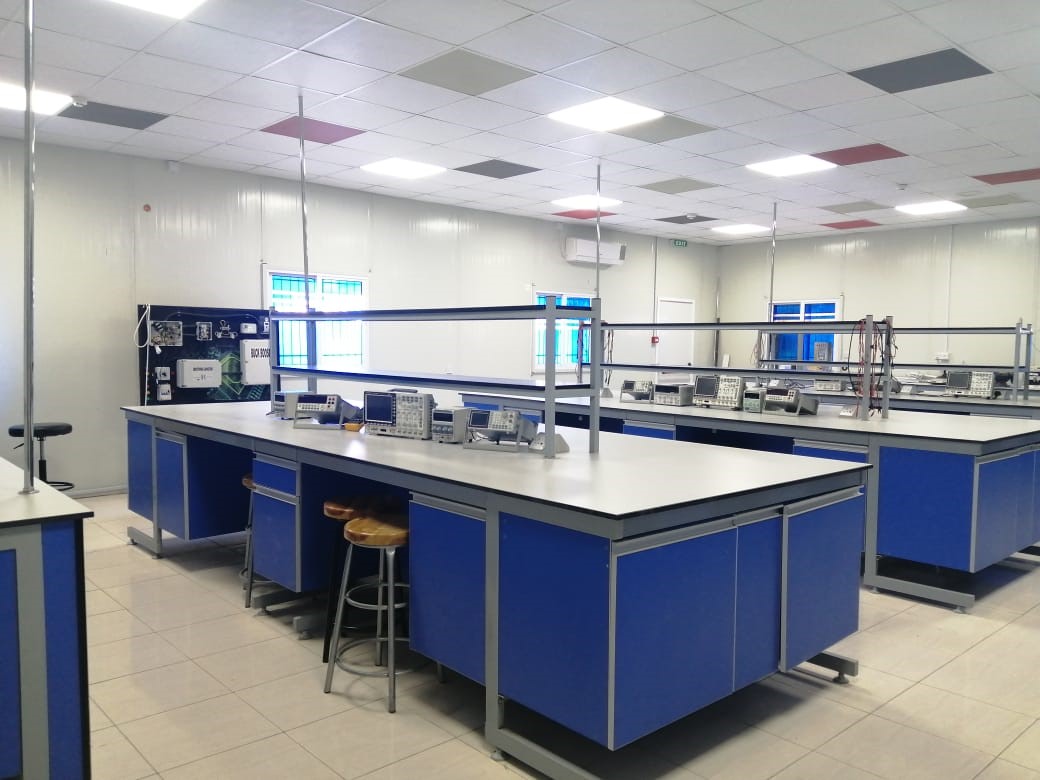
The Electric and Electronic Circuits Lab includes a number of devices focused on electrical signal measurement and generation. It also includes a wide collection of electronic ICs and components. The lab covers the topics included within the courses of Electric Circuits (Both II & I) in addition to Electronics.

In Simulation Lab the students are allowed to simulate various renewable energy systems, for instance solar thermal power and wind system using System Advisor Model (SAM), Also, they will have a broad knowledge of simulation methods used to study, understand, design and execute solar maps, PV sizing and solar system for on-grid systems.

The heat transfer lab is equipped with a number of modules that allow students to perform collective experiments on different methods of heat transfer such as conduction, convection and radiation.

The Control Lab offers the students a rich combination of experimental procedures that explore in depth the concepts relating to Proportion-Integration-Differentiation Controllers.
- Engineering Laboratories
- Engineering Workshops
- Surveying Laboratory
- Environmental and Sanitary Engineering Laboratory
- Fluid Mechanics Laboratory
- Highway Materials Laboratory
- Soil Mechanics Laboratory
- Building Materials Technology Laboratory
- Solar Energy Laboratory
- Wind Energy Laboratory
- Electric Machines Laboratory
- Power Systems and Power Electronics Laboratory
- Instrumentation Measurements Laboratory
- Electrical and Electronic Circuits Laboratory
- Simulation Laboratory
- Heat Transfer Laboratory
- Control Systems Laboratory

